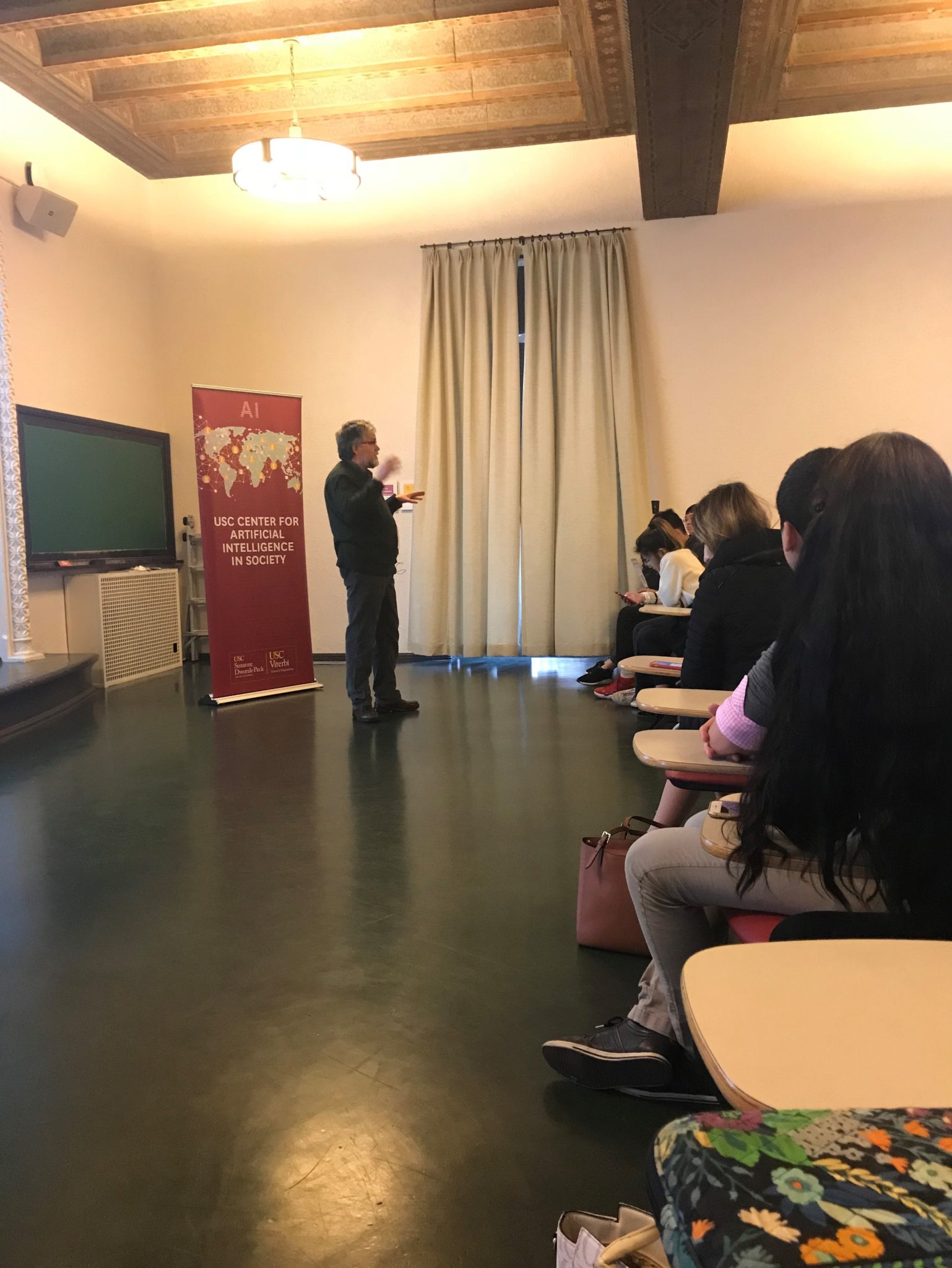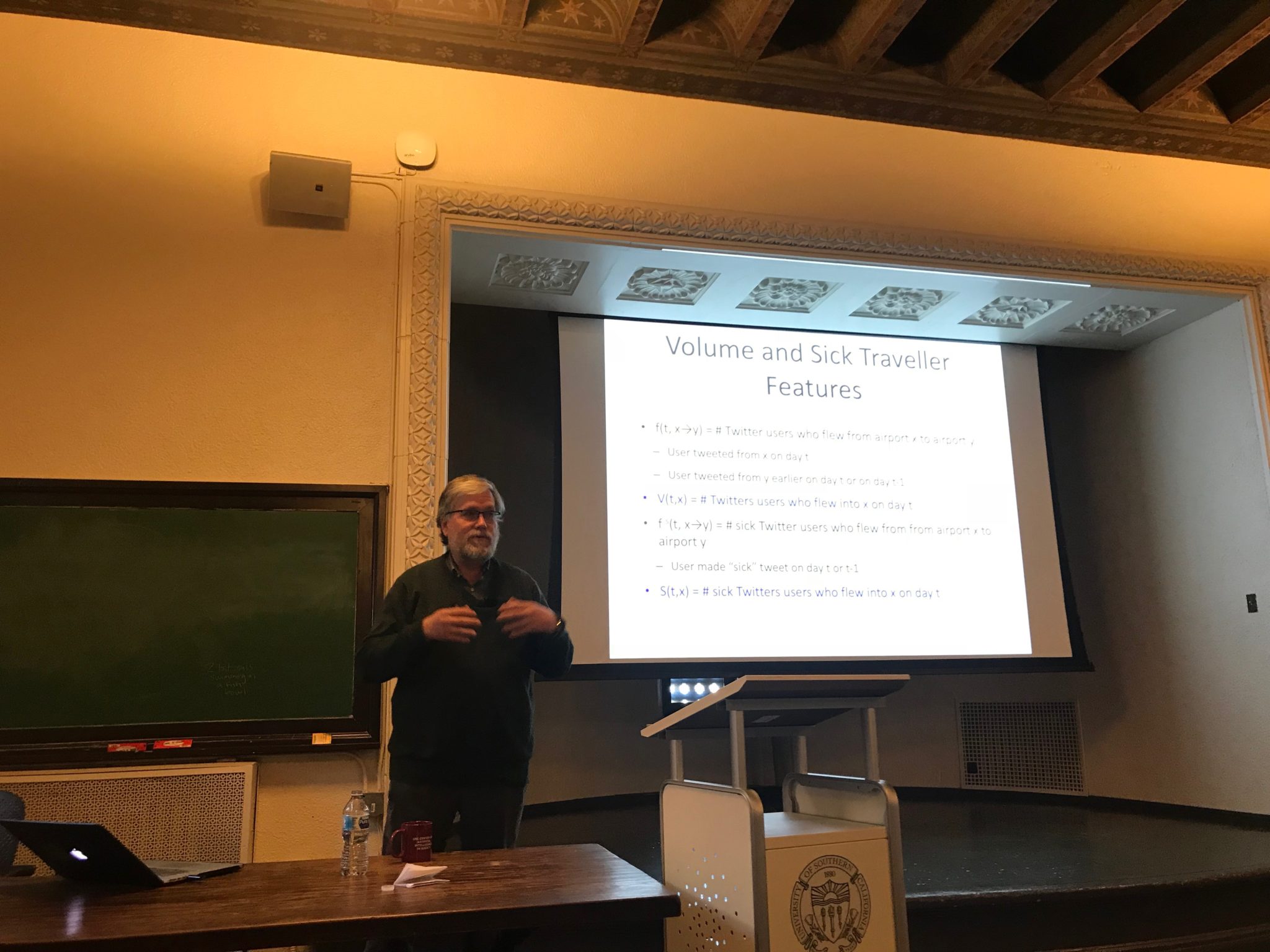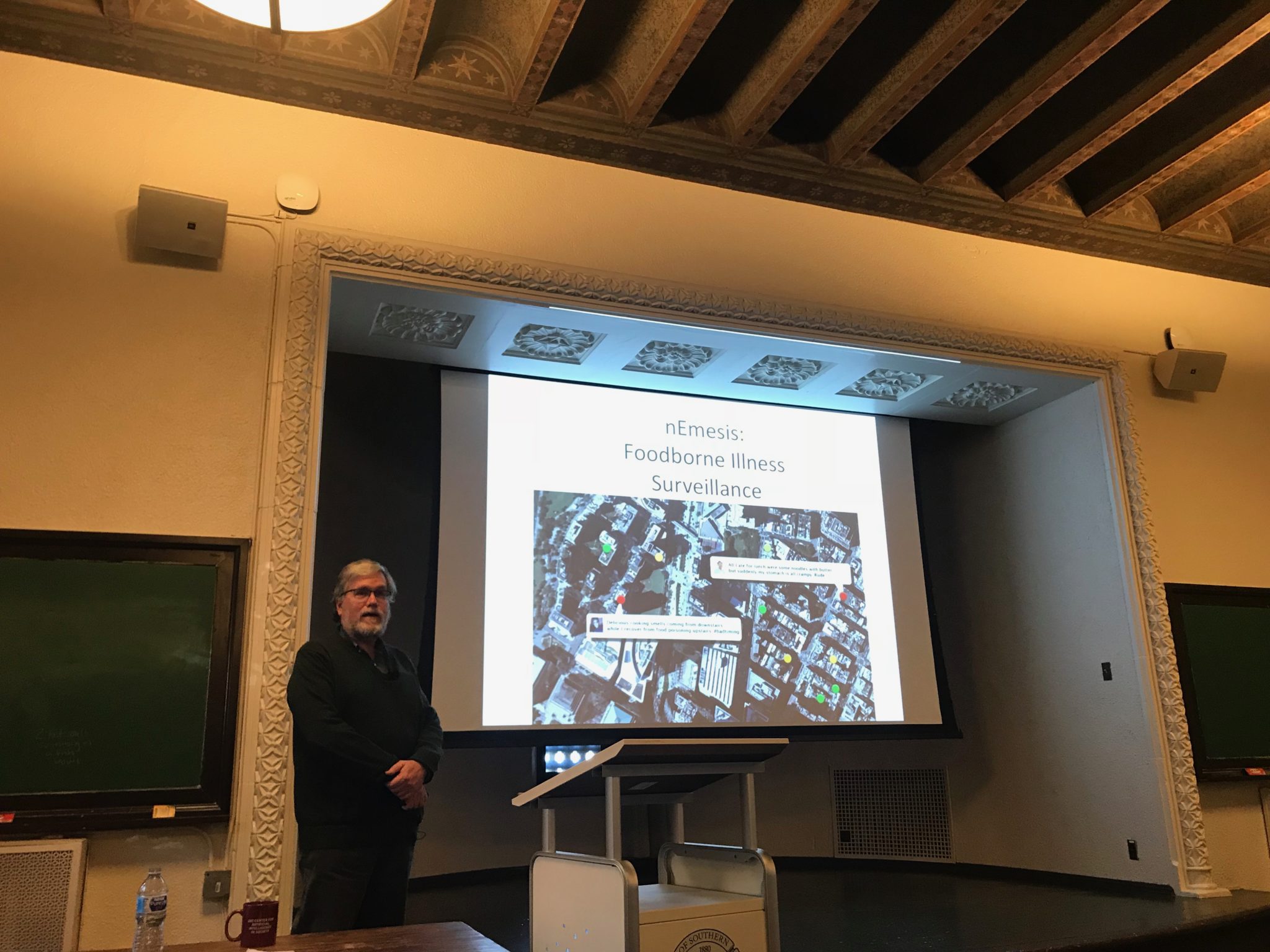
Dr. Henry Kautz presenting at the February 28 USC CAIS seminar.
Dr. Henry Kautz lectured on the impact of social media analytics and its usefulness in the realm of public health. He discussed the way in which data science can be used to predict healthcare. More specifically, information in electronic medical records can be used to predict individual treatment outcomes for patients. Dr. Kautz also went on to address the way in which digital media can be used to monitor public health through spaces such as Twitter. His lecture detailed how data can be captured through wearable devices and cellphones. By using these devices, there is no need for recruitment, information is received in a timely manner and finely grained; however there are challenges in finding the most useful and actionable data.
One example of this type of data tracking involved “Twitterfly” in which twitter feeds could be mined for self reports of flu symptoms otherwise known as “sick tweets.” The goal of this study was to find tweets about disease symptoms through a machine learning approach. This approach trained the system to recognize “sick tweets” separating words into positive and negative examples. This method was in contrast to using keywords to find “sick tweets.” Keywords can be problematic as certain words or phrases such as “sick of doing homework” have multiple meanings. Through machine learning, millions of tweets were analyzed, labeled, and able to be redefined with additional feedback from users. Factors taken into account included the location of people tweeting and the impact of your friends on your tweets (this factor proved to have a marginal impact). For example, in terms of location: if are you often in places where people are sick or if you tweeted from the same location as someone who has tweeted they are sick- will you appear sick in the next 3 days? The hypothesis was that people without an extensive social network are lonely, affecting self-esteem; ultimately these factors lower a person’s resistance leading to illness.

Dr. Kautz also lectured on the effectiveness of using digital media to combat foodborne illnesses. Previously, the primary tools to combat this issue had been general education and inspection of food venues. However, food venues are inspected annually with restaurants and food vendors were able to predict and prepare for these visits. In addition, there are many existing unlicensed venues which go unchecked. Dr. Kautz’s research focused on how to target inspections more effectively while also finding problematic unlicensed venues. The resulting Las Vegas Trial, a 3-month trial by Southern Nevada Health District, collected tweets through Las Vegas and tweets to food venues. The trial tracked users who likely ate at a food venue and collected users’ tweets regardless of their location. Through this process, sick users were linked to specific food venues they had visited before falling ill. This trial uncovered more violations and significantly more “C grades” for food venues. This particular study was the first of its kind to show an effective intervention based on social media analytics.




